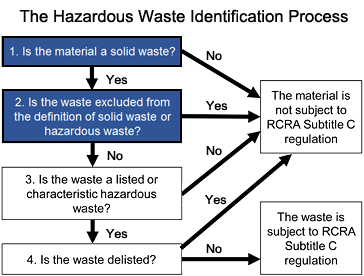What Does Reclaim Waste Mean?
What Does Reclaim Waste Mean?
Blog Article
The Buzz on Reclaim Waste
Table of ContentsThe Reclaim Waste PDFsThe Basic Principles Of Reclaim Waste The Ultimate Guide To Reclaim WasteSome Ideas on Reclaim Waste You Need To KnowWhat Does Reclaim Waste Do?
Residential sewage waste refers to the waste and items from a property septic storage tank. The correct management and disposal of residential sewage waste need liquid waste to be moved to a sewage therapy plant where the correct approaches and tools are applied to purify and dispose of waste.
Industrial waste often includes potential threats, such as combustible products or a mix of fluid and solid waste items, and requires a more innovative and thorough disposal process. The disposal of commercial waste typically includes the purification of waste prior to transportation to make certain safe and appropriate disposal. Industrial waste is produced from results and runoff of commercial procedures and production.
This kind of waste can not utilize the very same sewer administration transport or procedures as septic or commercial liquids. The industrial waste administration procedure requires the examination and testing of liquid waste prior to it undertakes the disposal process (liquid waste disposal melbourne). Overflow waste is the liquid waste that originates from overflow and excess stormwater in extremely inhabited locations or cities
Runoff waste can cause contamination and flooding if not handled properly. Making sure correct waste administration can avoid catastrophes and decrease environmental damage.
The Ultimate Guide To Reclaim Waste
Contact PROS Providers today to discover our waste administration and disposal services and the proper means to care for the liquid waste you generate.
(https://writeablog.net/reclaimwaste1/reclaiming-resources-a-comprehensive-guide-to-industrial-wastewater-treatment)This so-called 'wastewater' is not just an essential resource yet, after therapy, will be launched to our land, waterways or the ocean. Utilized water from commodes, showers, bathrooms, cooking area sinks, washings and commercial processes is recognized as wastewater.

water made use of to cool machinery or tidy plant and tools). Stormwater, a kind of wastewater, is drainage that flows from farming and metropolitan areas such as roofing systems, parks, gardens, roadways, paths and seamless gutters right into stormwater drains, after rain. Stormwater moves without treatment straight to local creeks or rivers, ultimately getting to the ocean.
Not known Factual Statements About Reclaim Waste
In Queensland, most wastewater is treated at sewer therapy plants. Wastewater is delivered from residential or industrial sites through a system of sewers and pump terminals, referred to as sewerage reticulation, to a sewage treatment plant. City governments build, preserve and run most sewer therapy plants. Operators are certified under the Environmental Protection Act 1994 to discharge treated wastewater at an acceptable environmental requirement into waterways.
The Division of Natural Resources advises city governments about handling, operating and maintaining sewerage systems and therapy plants. In unsewered locations, regional governments might need homeowners to mount specific or home sewer treatment systems to deal with domestic wastewater from commodes, kitchen areas, restrooms and laundries. The Department of Natural Resources authorizes making use of home systems when they are verified to be reliable.
In some new communities, treatment of some stormwater to get rid of litter, sand and gravel has actually started utilizing gross contaminant traps. Wastewater therapy happens in 4 phases: Removes strong issue.
Wastewater then flows right into big containers where solids settle and are removed as sludge. Oil and residue are skimmed from the surface. Utilizes small living organisms called micro-organisms to damage down and get rid of remaining liquified wastes and fine bits. Micro-organisms and wastes are incorporated in the sludge. Gets rid of nitrogen and phosphorus nutrients that could cause algal blossoms in our waterways and threaten marine life.
Some Known Questions About Reclaim Waste.
Nutrient removal is not available at all sewage therapy plants due to the fact that it calls for pricey specialized equipment. Clear read this post here fluid effluent generated after therapy may still include disease-causing micro-organisms - liquid waste disposal.

This normally implies wastewater has to be treated or contaminants removed prior to it can be released to waterways. Most wastewater streams into the sewage system. Under the Act, regional governments provide approvals and permits for ecologically appropriate activities (Periods) entailing wastewater launches that may have a local influence. The division provides approvals and permits to Ages including wastewater releases that may have a regional or statewide influence.
Reclaim Waste - The Facts
Or else, examples are considered research laboratory evaluation. Commonly lots of tests are needed to establish the levels of each of the different pollutants such as oils, heavy steels and pesticides in water. Surveillance offers accurate information regarding water high quality and can confirm that licence problems are being satisfied. The info acquired via monitoring offers the basis for making water top quality choices.
Report this page